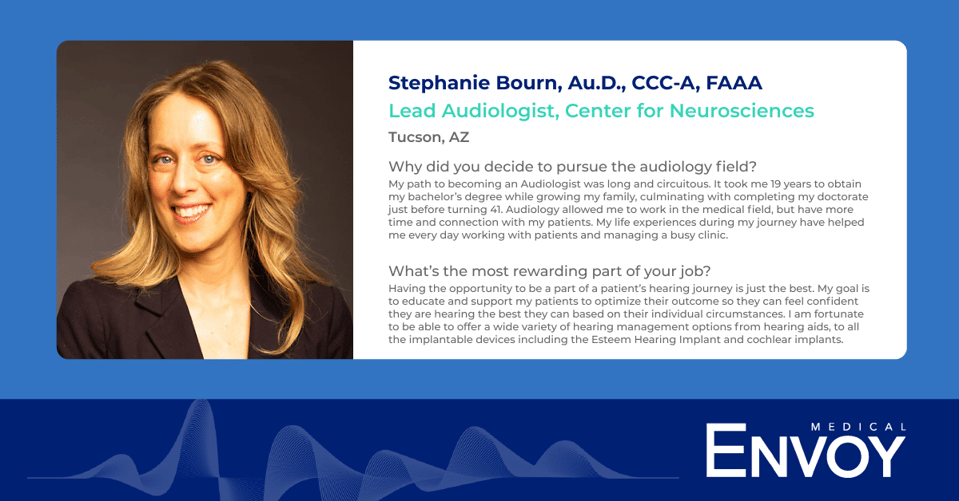Aural Rehabilitation- Does it work?
by Envoy Medical Staff Member, on May 29, 2021
Rehabilitation can help you get back, keep, or improve physical, mental, and/or cognitive, abilities that you need for daily life which may have been lost due to disease or injury, or as a side effect from medical treatment.
Most people are familiar with physical therapy and occupational therapy, but few have heard of auditory rehabilitation/auditory training. By the time many of us finally decide to pull the trigger and treat our hearing loss, we expect using the device to be the full solution and become frustrated when we still struggle. The number one complaint of individuals with hearing loss, whether they are treating their hearing loss or not, is having trouble hearing in background noise (louder environments). Auditory rehabilitation can help improve the ability to hear in background noise.
The actual process of hearing involves a significant amount of brain processing. The most challenging for the brain is decoding sound when we are in a loud environment trying to hear another speaker. As we age brain processing abilities decline as part of the normal aging process.
The three main areas that are negatively impacted by this decline are processing speed, working memory, and distraction. When we have hearing deficits the brain works even harder.
Research shows that people with a greater working memory capacity can understand more when they are in background noise.
Auditory rehabilitation can improve processing speed, working memory, and distraction thereby reversing the negative effects of aging.
This five-minute video is a great explanation of how the brain processes sound.
One of the most recognized Auditory Training programs for people with hearing loss is called Listening and Communication Enhancement, or L.A.C.E and was created by a group of leading Audiologists in California with help from Silicon Valley software engineers. L.A.C.E used to be something you had to get through your audiologist. However, you can now purchase the program on your own and do it at home. There are other Auditory training programs but none have as much research behind them as L.A.C.E so this one is the focus of this article.
L.A.C.E is an online aural rehabilitation program you can access via any modern browser such as your smartphone, tablet, or desktop. It is interactive, self-paced, and individualized. Over four weeks you spend 30 minutes a day five days a week working to enhance your listening skills. Training modules include five different types of listening exercises and tests your ability to hear in noise and the exercises adapt based on how you are doing. Training modules are designed to increase working memory, the ability to hear in noise, and improving processing speed. The program has been redesigned recently.
Many studies show the benefit of Aural rehabilitation and it's often used after cochlear implant activation. Those without cochlear implants can also benefit from these exercises and L.A.C.E users have shown improvement in understanding.
Preventative approaches to our health help us stay ahead of decline and work to address and strengthen deficits that occur because of aging. Whether it is exercise, diets, vitamins/supplements, or doing puzzles to keep our minds sharp there are many things we can incorporate into our daily lives in an effort to improve our health. Auditory training has been shown to be effective and hearing loss is now the highest modifiable risk factor for dementia in later life, so perhaps we will see even greater improvements in our overall brain health when we are treating the hearing loss AND working to improve our brain processing.
Learn more about LACE:
on sale for $99

If you're interested in improving your ability to distinguish speech in noisy environments, practice your singing. A recent study concluded that this simple activity improved speech-in-noise perception among adults with age-related hearing loss. This was a short-term study and improvement was seen after just 10 weeks.


